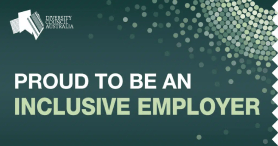Processing your emotions about the diagnosis can seem overwhelming enough without understanding all the information that accompanies it.
The federal government-funded Autism Awareness Australia has an amazing online resource, Autism: What Next? to help guide the first steps of your autism journey. It was created by people with autism and their loved ones, for people with autism and their loved ones.
But let’s start at the beginning.
What is autism?
Autism: What Next? defines autism spectrum disorder as a development disorder that “affects the way people communicate and relate with the world”. It is key to note that, as the name implies, it covers a full spectrum of behaviours. And while some behaviours can make life a little more tricky to navigate, some are important skills and strengths.
How is it diagnosed?
There is no precise test to diagnose autism spectrum disorder. It is based on behaviours using the Diagnostic and Statistical Manual of Mental Disorders (DSM).
Some key diagnostic behaviours include little or no interest in other people’s interests or emotions or difficulty making friends or engaging in conversation. People diagnosed at Level 1 need some support, Level 2 need substantial support, and Level 3 need very substantial support.
While most ASD diagnoses are made in early childhood, some Level 1 ASD might not be diagnosed until a child starts school or even high school.
And sometimes it can go unrecognised into adulthood for many reasons – not least because, like every human being, no two people with autism are the same. Some people may have been misdiagnosed when younger, or their circumstances may have changed. When people live independently, focus on their behaviours may highlight additional needs.
What next?
Whatever the case, there are supports available for people with autism, and their loved ones, for each stage of the autism journey. Autism: What Next? has a wide range of information and is well worth a read.
LiveBig
At LiveBig, we deliver flexible, tailored supports that meet our clients’ individual needs under their NDIS plan. We have a wide range of services, including psychology, occupational therapy, exercise physiology, speech pathology, behaviour support, counselling, physiotherapy, and finding and keeping a job.
What about employment?
While being diagnosed with ASD might affect how you approach a job, and what you need to work successfully in that job, there are supports to help you find a workplace that suits you.
Also, many of the strengths and skills associated with ASD are highly sought after by employers. At AimBig Employment, our focus is on achieving the best outcomes for all clients. We support people with disability to secure, maintain and thrive in meaningful work and have the connections and the experience to match the right people with the right opportunities.





